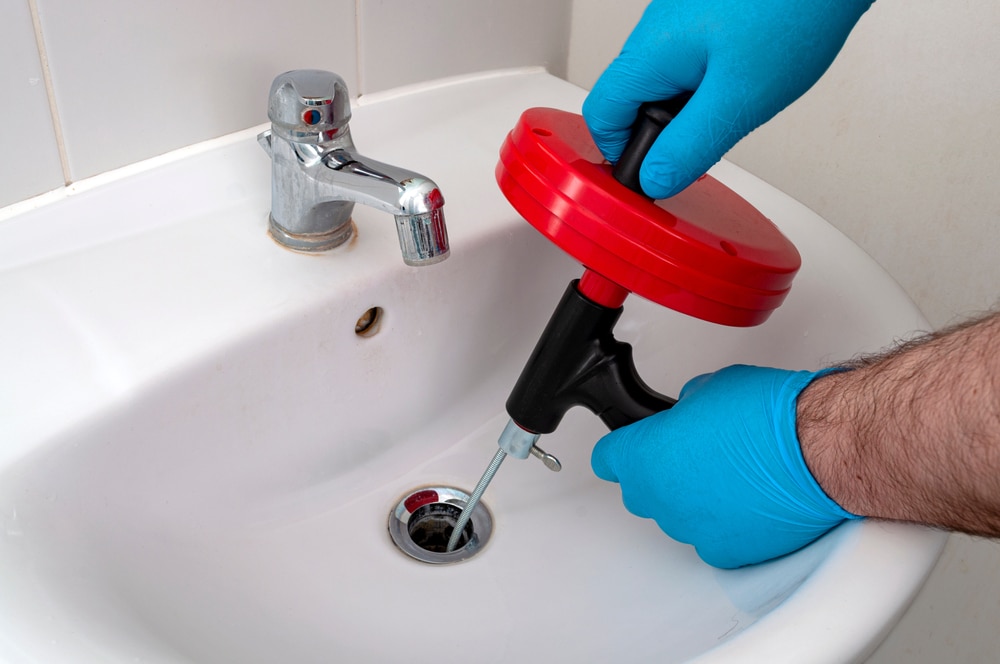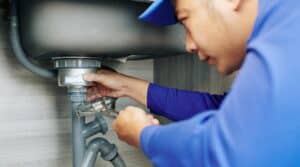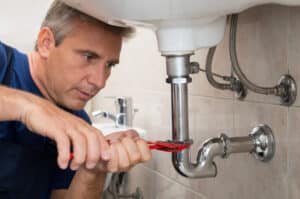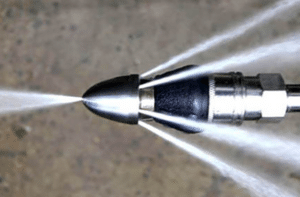Clogged drains are a common household problem that can cause a lot of inconvenience. Slow-moving or backed-up water in the sink, shower or bathtub can be frustrating, but it can also lead to more significant problems that can damage your plumbing system. Not only that, but clogged drains can also be a breeding ground for bacteria and unpleasant odors. Fortunately, there are several simple DIY tips you can use to prevent clogs before they happen. In this article, we’ll discuss the causes of clogged drains, signs to look for, and several effective tips for preventing clogs.
Understanding the Causes of Clogged Drains
Clogged drains can be caused by a variety of factors. One of the most common causes is an accumulation of hair, soap scum, and other debris that build up over time. This can happen in any drain, but it’s particularly common in the shower or bathtub. Another common cause of clogged drains is the buildup of grease and oil in the kitchen sink. When you pour grease or oil down the drain, it can solidify and create a blockage. Other potential causes of clogged drains include flushing inappropriate items down the toilet or tree roots growing into your pipes.
Signs of Clogged Drains
The signs of a clogged drain can vary depending on the location of the blockage. If the blockage is in the kitchen sink, you may notice that water drains more slowly than usual, and there may be a foul odor coming from the drain. In the bathroom, a clogged drain may cause water to back up into the sink or shower. You may also notice that the toilet doesn’t flush properly or that water is slow to drain from the bathtub. If you notice any of these signs, it’s essential to take action right away to prevent a more significant problem.
DIY Tips for Preventing Clogged Drains
Preventing clogged drains is easier than you might think. By following these simple DIY tips, you can keep your drains flowing smoothly and avoid the frustration and expense of a major plumbing repair.
1. Regular Cleaning and Maintenance
One of the most important things you can do to prevent clogged drains is to clean them regularly. This means removing any debris or buildup that may be present in the drain. You can do this by using a plumbing snake or a plunger to clear the blockage. You can also use a mixture of baking soda and vinegar to dissolve any buildup that may be present.
2. Use a Drain Strainer
Another effective way to prevent clogged drains is to use a drain strainer. These devices are designed to catch hair, food particles, and other debris before it can enter the drain. They’re easy to install and can save you a lot of trouble in the long run.
3. Avoid Pouring Grease and Oil Down the Drain
One of the most common causes of clogged drains in the kitchen is the buildup of grease and oil. To prevent this, it’s essential to avoid pouring these substances down the drain. Instead, pour them into a container and dispose of them in the garbage.
4. Use Baking Soda and Vinegar
Baking soda and vinegar are powerful natural cleaners that can help prevent clogged drains. To use this method, pour a cup of baking soda down the drain, followed by a cup of vinegar. Let the mixture sit for a few minutes, then flush the drain with hot water.
5. Use a Plunger
If you’re dealing with a clogged drain, a plunger can be a highly effective tool. Place the plunger over the drain and use a pumping motion to create suction. This can help dislodge any debris that may be causing the blockage.
Natural Remedies for Clogged Drains
In addition to the DIY tips listed above, there are several natural remedies you can use to prevent clogged drains. These include:
1. Salt and Boiling Water
To use this method, pour a half-cup of salt down the drain, followed by a pot of boiling water. Let the mixture sit for a few minutes, then flush the drain with hot water.
2. Baking Soda, Salt, and Cream of Tartar
Mix a quarter-cup of baking soda, a quarter-cup of salt, and two tablespoons of cream of tartar. Pour the mixture down the drain, followed by a pot of boiling water. Let the mixture sit for a few minutes, then flush the drain with hot water.
3. Lemon Juice and Baking Soda
Mix a half-cup of baking soda with a half-cup of lemon juice. Pour the mixture down the drain and let it sit for a few minutes. Flush the drain with hot water.
When to Call a Professional
While the tips listed above can be highly effective in preventing clogged drains, there may be times when you need to call in a professional plumber. If you’ve tried these methods and still can’t clear the blockage, it may be time to call for help. A professional plumber can use specialized tools and techniques to clear even the most stubborn clogs.
Conclusion
Clogged drains can be a major headache for homeowners, but they don’t have to be. By following the DIY tips listed above, you can keep your drains flowing smoothly and avoid the frustration and expense of a major plumbing repair. Remember to clean your drains regularly, use a drain strainer, avoid pouring grease and oil down the drain, and use natural remedies to prevent clogs. If you do encounter a stubborn clog, don’t hesitate to call in a professional plumber for help. With these tips and a little bit of effort, you can keep your drains in top condition for years to come.





















